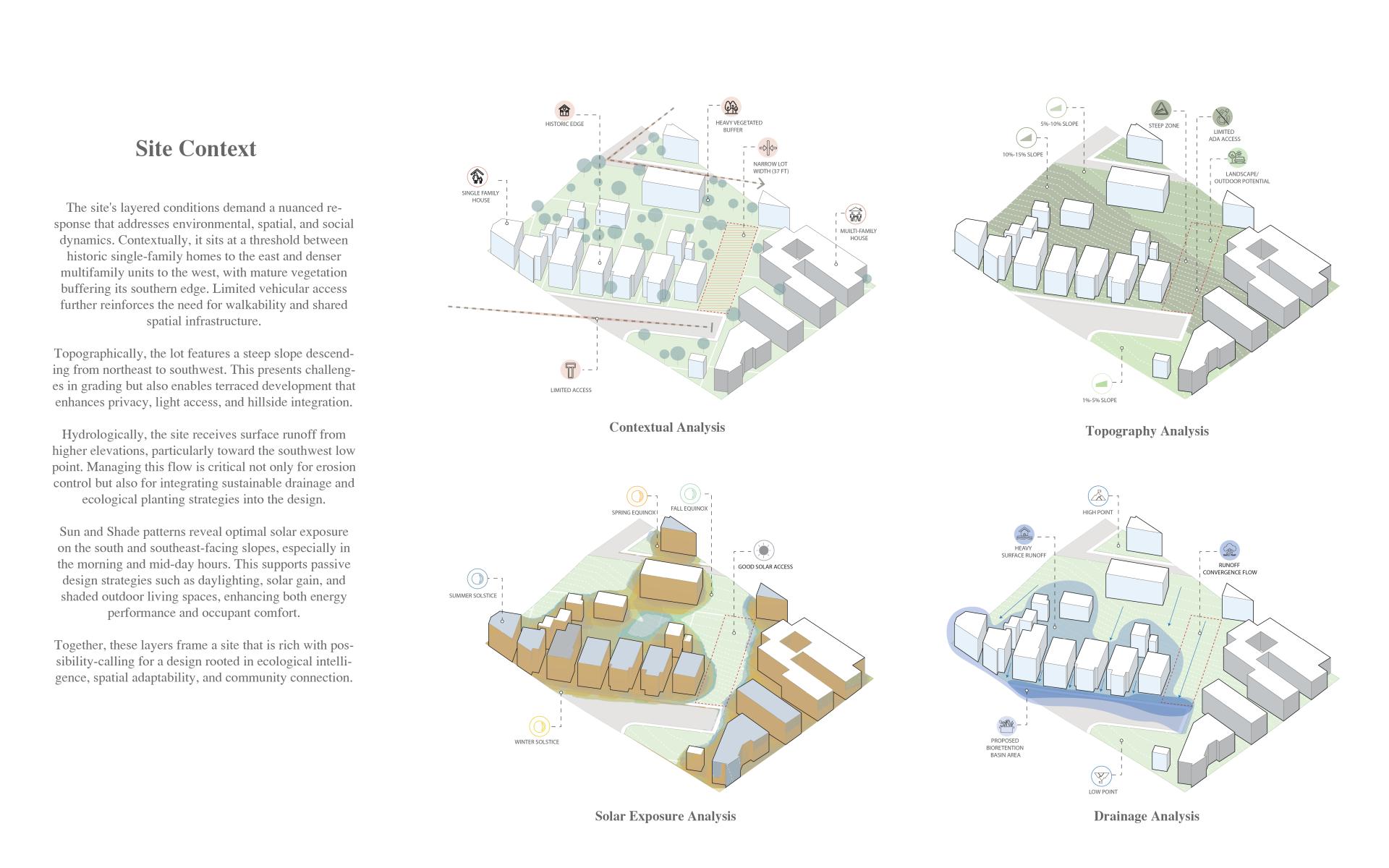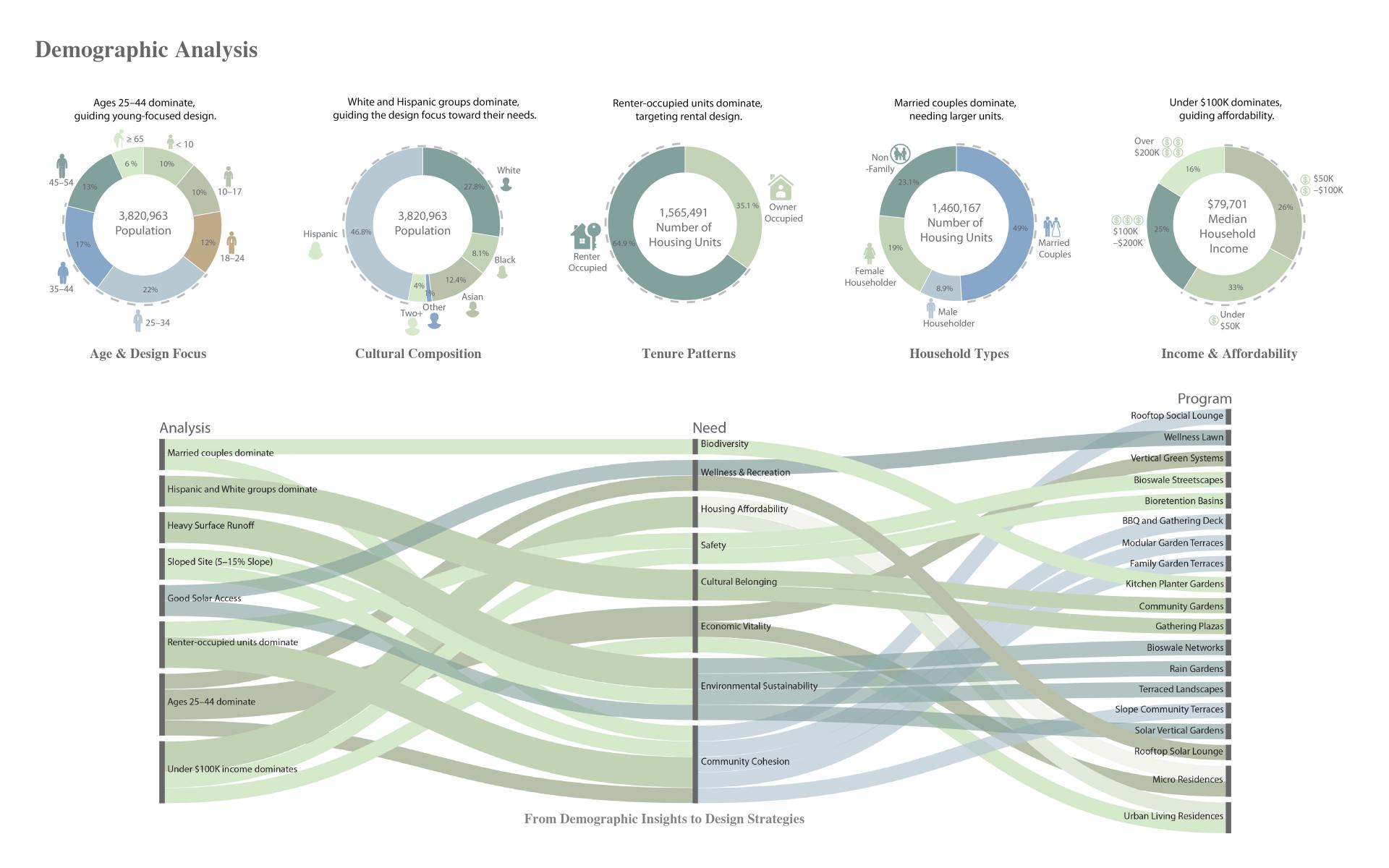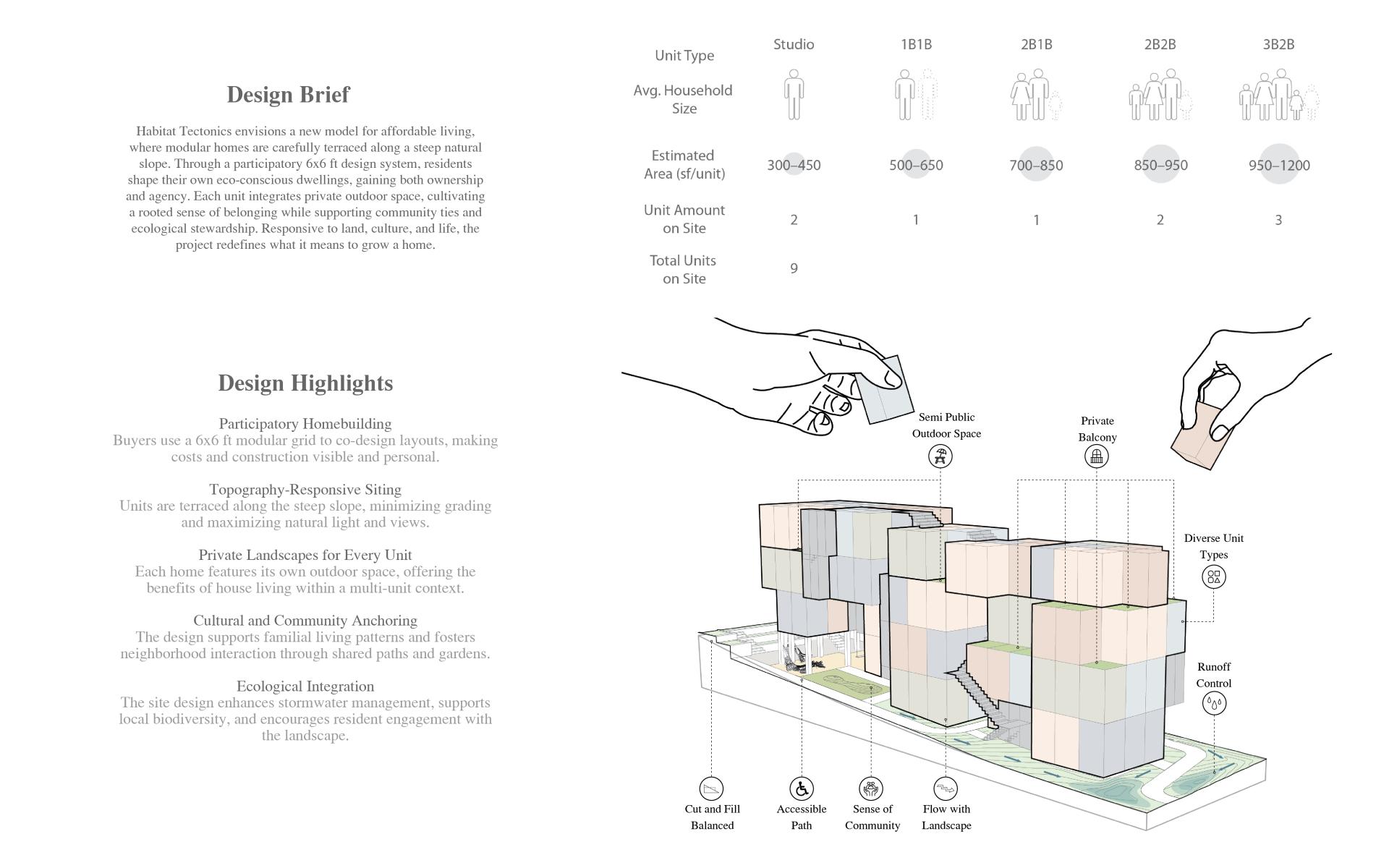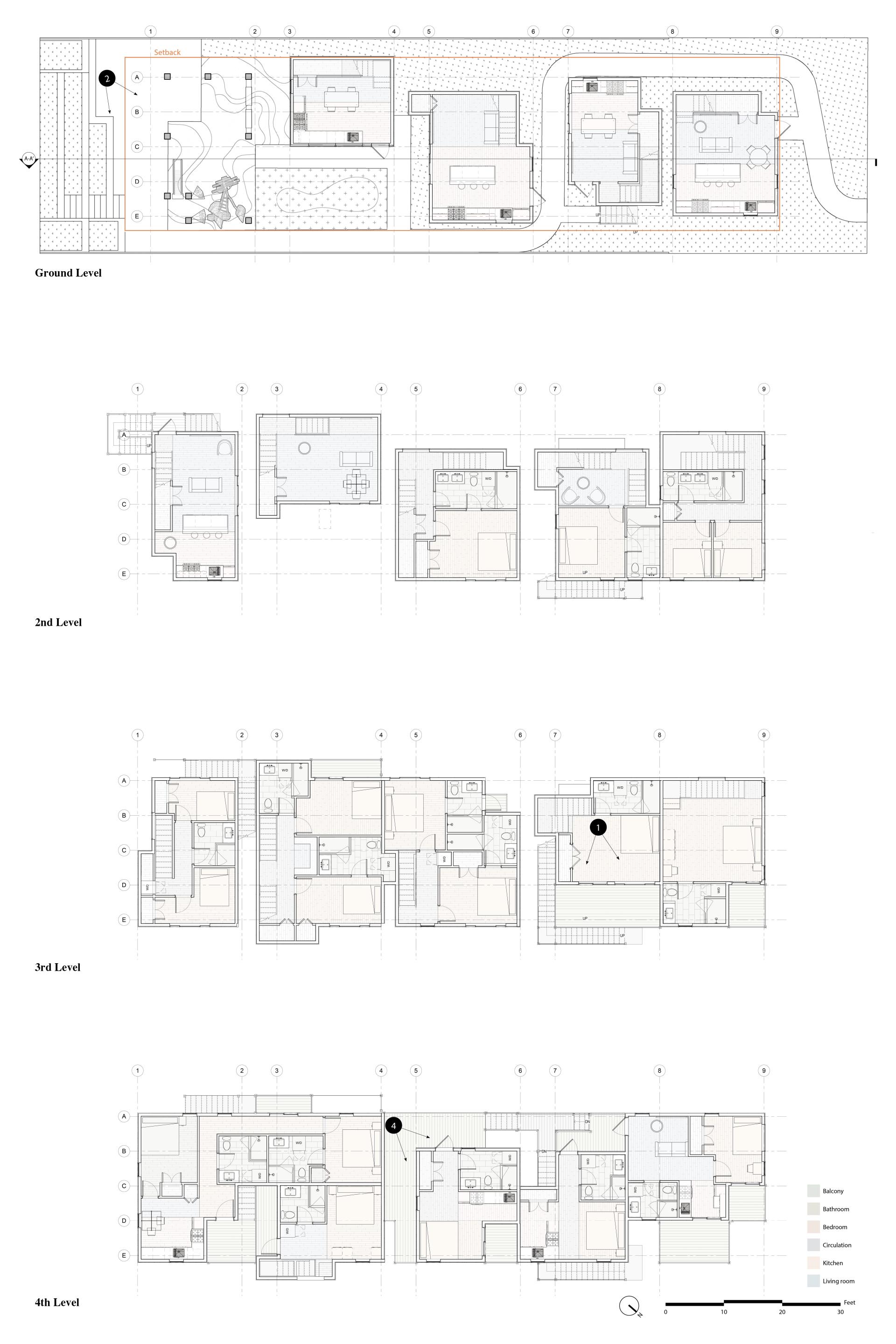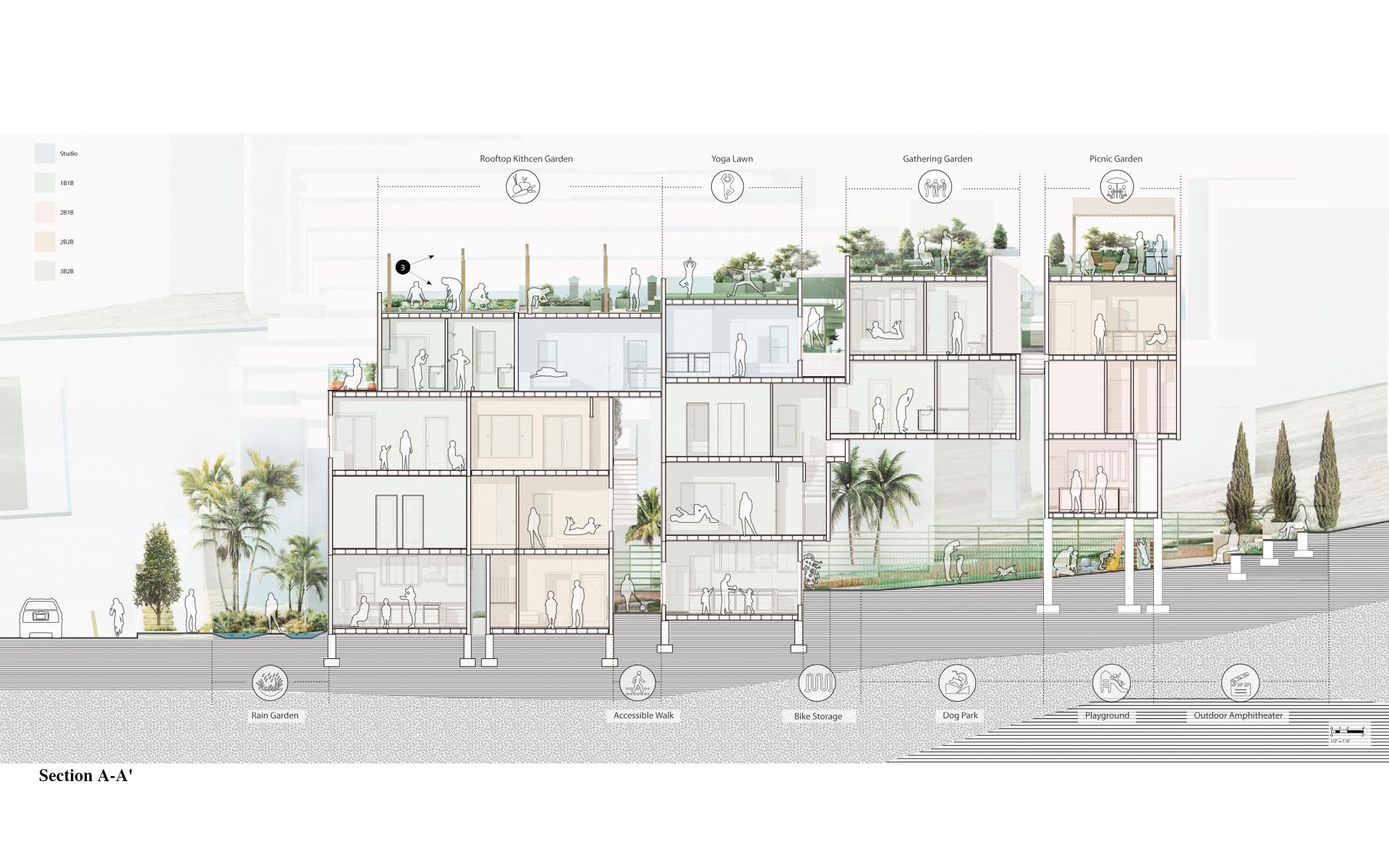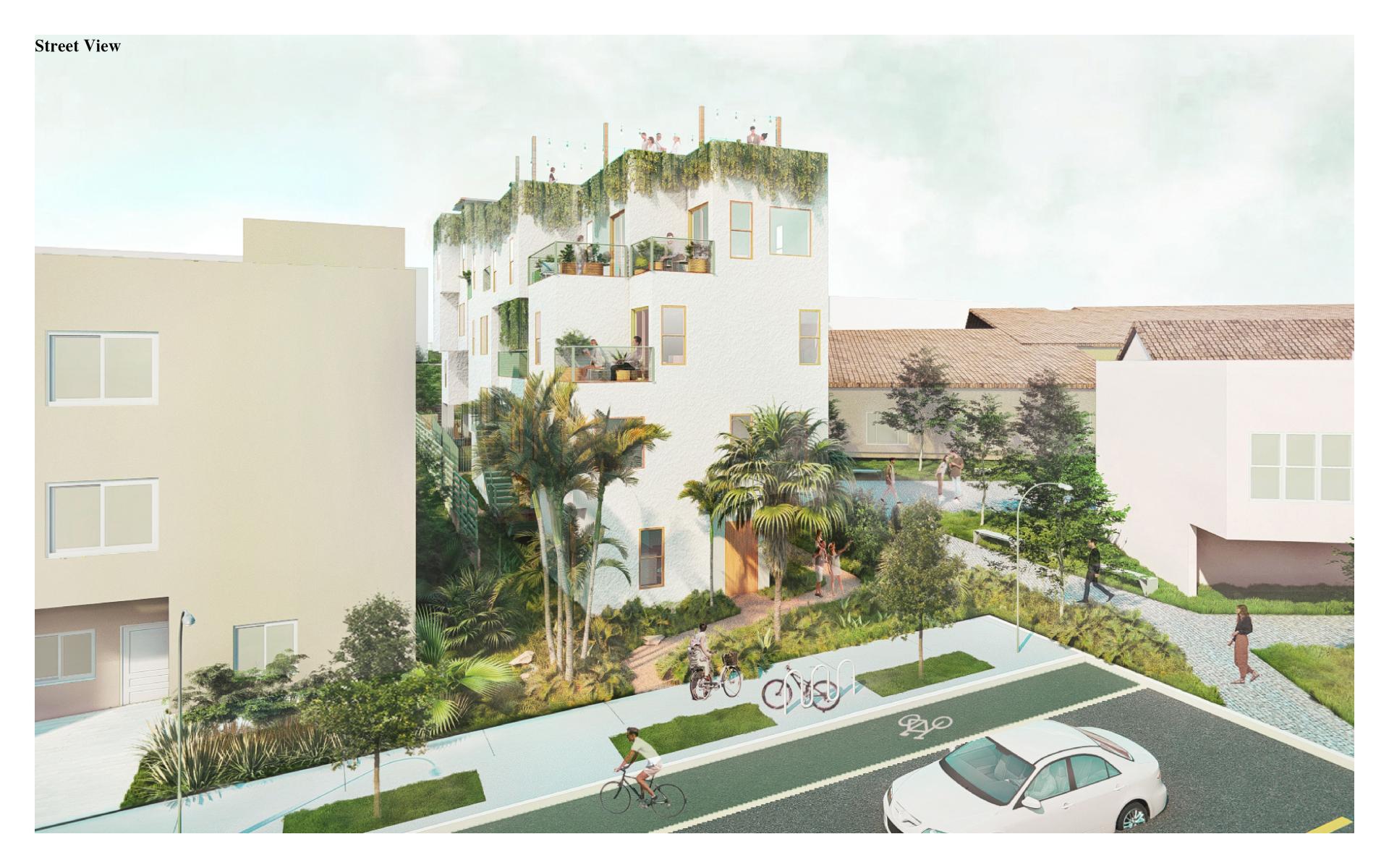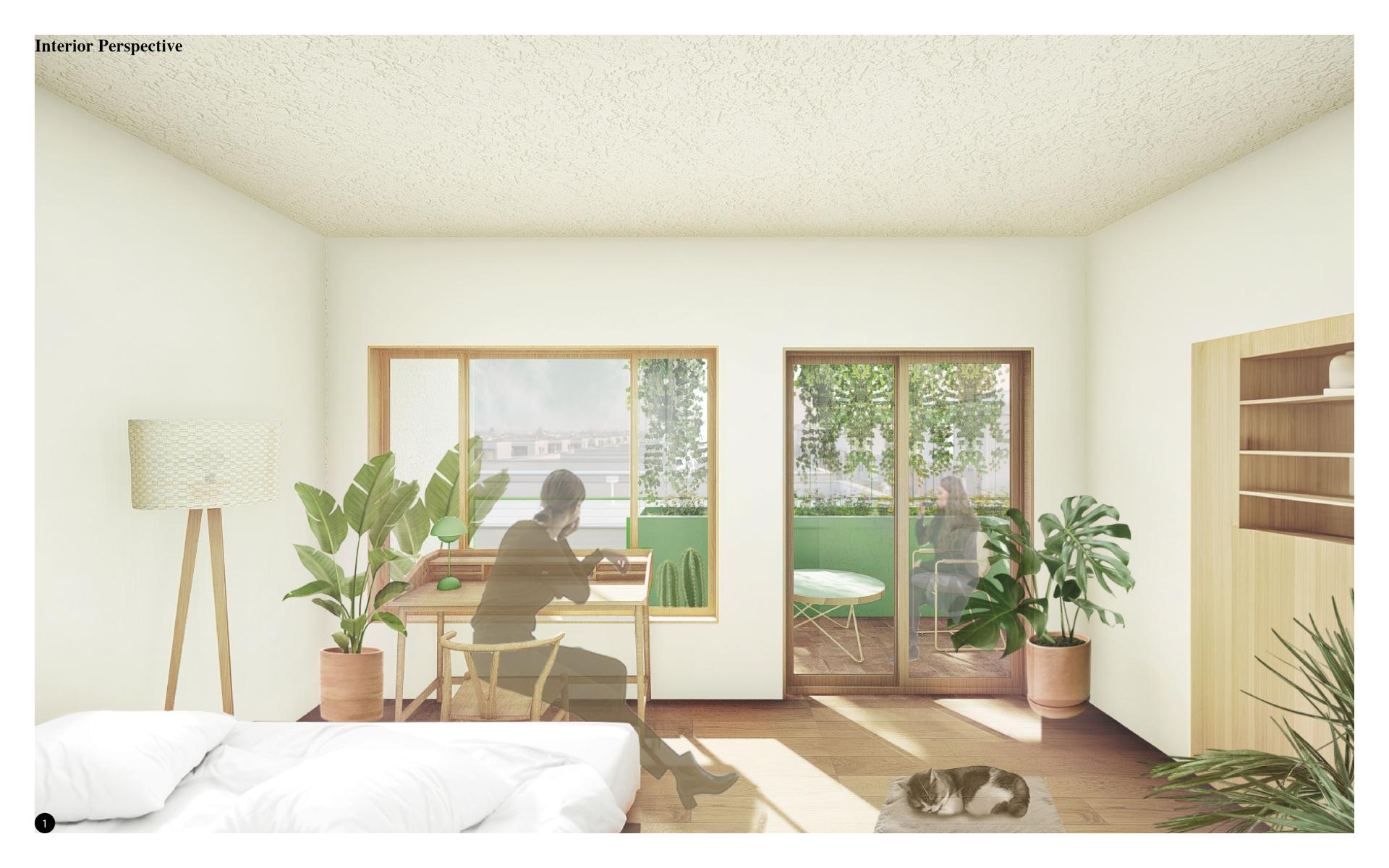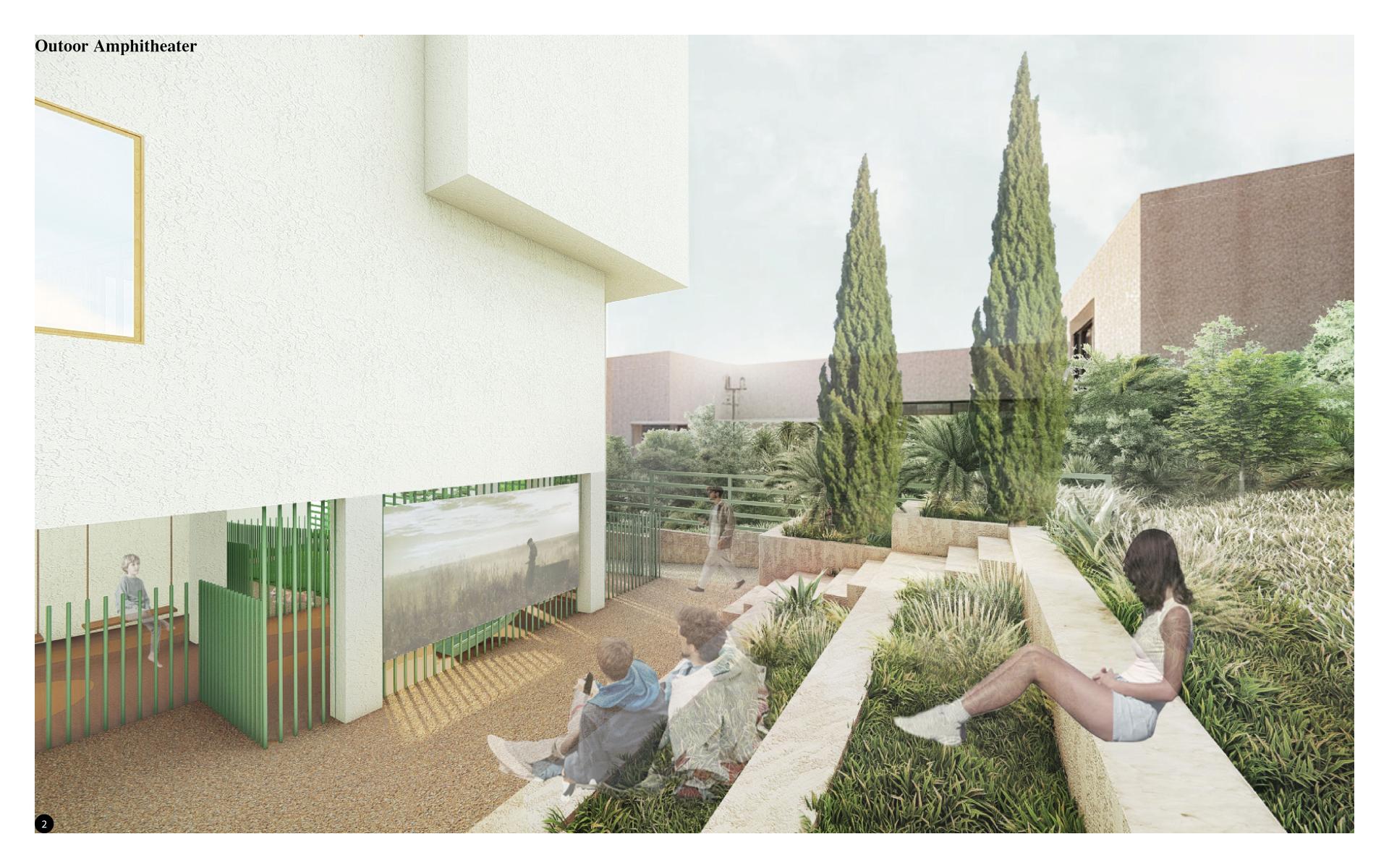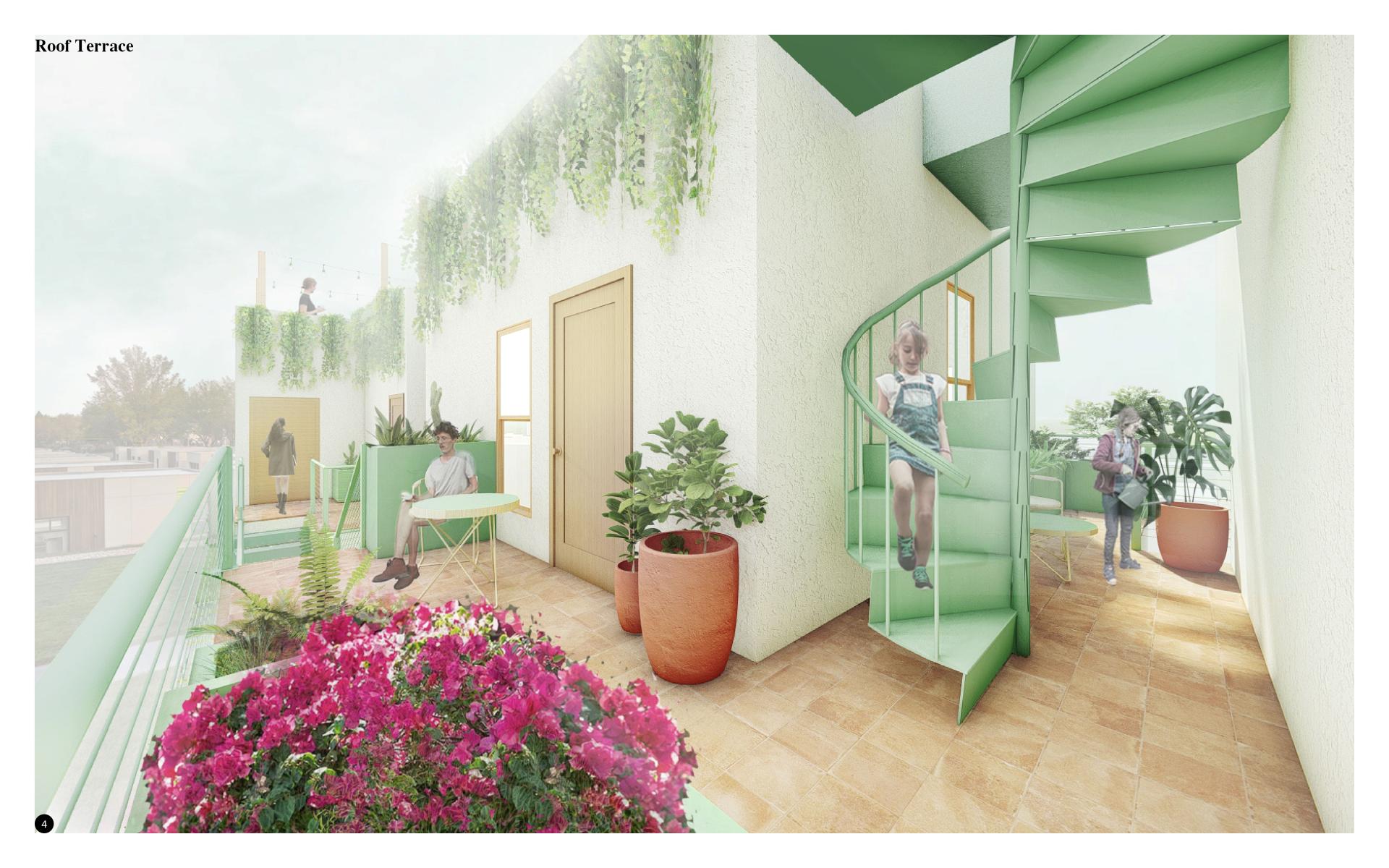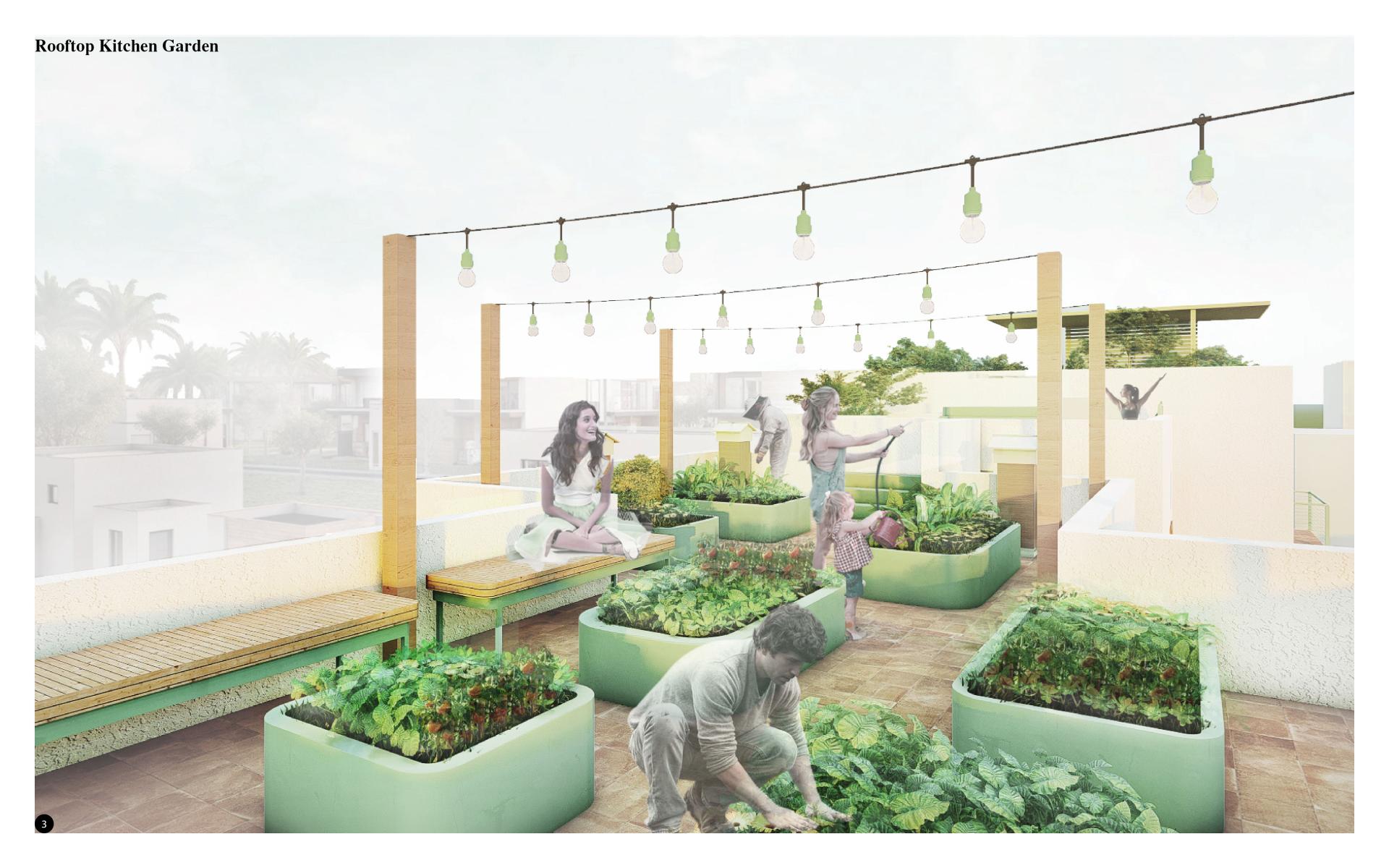2025 | Professional

Habitat Tectonics:Participatory Eco-Living, Rooted Belonging
Entrant Company
Pu Melody Zhao, Jingyi Qiu, Yuchen Zheng
Category
Architectural Design - Low Cost Housing
Client's Name
Country / Region
United States
Habitat Tectonics proposes a replicable model for affordable housing that centers human agency, ecological intelligence, and cultural context. Set within the steep slopes of Northeast Los Angeles, the project reimagines small-scale infill as a platform for co-authorship, where future residents actively shape the homes they will inhabit.
At its core lies a participatory design system based on a 6x6 ft modular grid. This framework invites homebuyers to customize their unit layouts—making spatial decisions transparent, empowering, and personal. By engaging residents in the act of co-creation, the project fosters deeper emotional attachment and long-term stewardship.
Topography is not treated as a constraint but as a catalyst for spatial richness. Units are carefully terraced along the hillside, minimizing grading while maximizing privacy, solar access, and views. This balanced cut-and-fill approach preserves the land’s integrity and supports site-sensitive construction. Each unit is paired with a private outdoor space, offering the comfort and autonomy of single-family living within a dense, multi-unit format.
Ecological performance is woven into every layer. Stormwater is managed through integrated landscape strategies that slow, filter, and infiltrate runoff. The surrounding vegetation is preserved and expanded to promote biodiversity and create a sensory connection between residents and the natural terrain. Circulation paths are designed as communal threads, linking dwellings through gardens and outdoor rooms that encourage informal gathering, intergenerational interaction, and collective care.
Culturally, the project responds to diverse household types and familial patterns. It offers a variety of unit configurations—studios to three-bedrooms—supporting multi-generational living, shared ownership, and housing flexibility over time. The absence of required interior setbacks, enabled by SB 1123, further allows design experimentation within tight urban constraints.
Ultimately, Habitat Tectonics envisions housing not as a product, but as a process—a living system where individuals, community, and landscape co-evolve. It offers a grounded vision for what urban dwelling can become when shaped by the people who live it, the land that holds it, and the culture it nurtures.
Credits
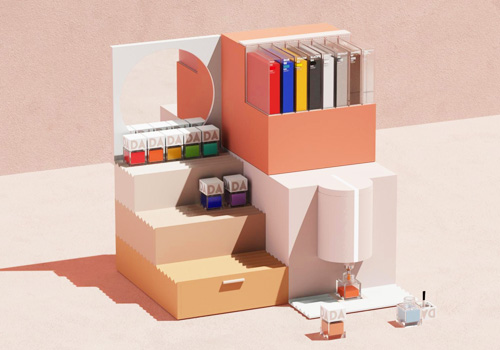
Entrant Company
Anqi Qiao
Category
Product Design - Beauty & Cosmetic Products

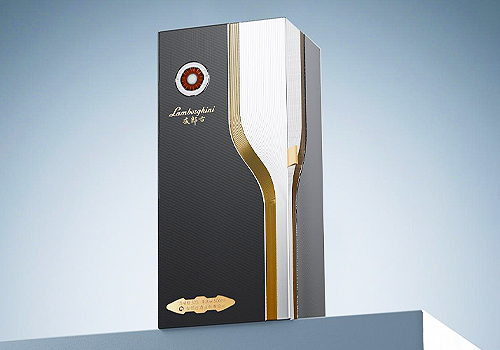
Entrant Company
Shenzhen Jujin Paper Packaging Co.,LTD
Category
Packaging Design - Brand Partnership / Collaborations

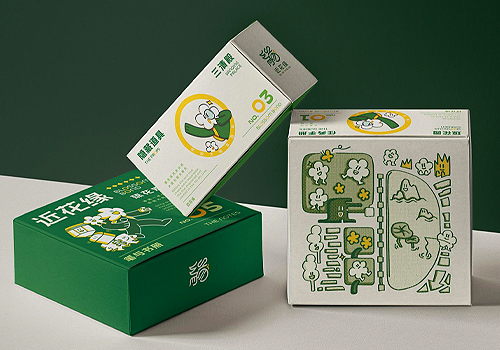
Entrant Company
Liyouyu He,Han Zhu
Category
Packaging Design - Games


Entrant Company
DOOR SPACE DESIGN
Category
Interior Design - Residential

